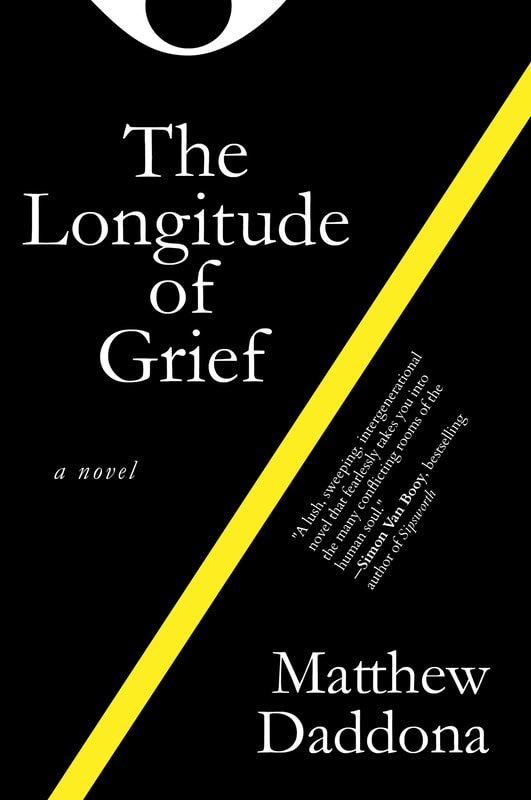Q&A with Matthew Daddona, The Longitude of Grief
/The book is written partly in third-person point of view before switching to the protagonist’s perspective a few years down the road. How do you feel using this point of view switch helped tell the story?
It serves as the emotional ballast of the story. I like to think the first two parts are purporting facts--they're framing the events of the book--but that the last part is the main character [Henry's] reckoning with said events. I'd be lying if I said I wasn't inspired by Roberto Bolaño's The Savage Detectives, which is a mystery baked into an ars poetica, flush with a deranged buddy-buddy story. It's a love story, for all intents and purposes. The Longitude of Grief is an anti-love story. Henry is never in love because he cannot understand the substructures that support healthy love and relationships. They've all been taken from him in the first two parts of the story. The final part is his attempt to understand why and, hopefully, wrestle them back.
You also have a unique perspective and storytelling relationship as a former acquisitions editor for major publishing houses, an acclaimed poet and now debut novelist. How did this varied publishing background influence your own voice as a writer?
It didn't haha. This is the most honest answer I can give. I spent years editing nonfiction (and I currently ghostwrite nonfiction), but I keep nonfiction and fiction writing pretty separate. They're not oppositional--they're just like different sports. At least for me. It's the only way I've been able to write fiction because the second I start thinking about the marketability of a piece of fiction, I'm doomed. What even is marketability? It sounds like a marketing term marketers have made up.
Kirkus calls The Longitude of Grief a “philosophical, intentionally digressive exploration of masculinity, toxic and otherwise.” Can you touch on your inspiration for this book and what you hope readers ultimately take away from the reading experience?
I was enthralled with Steinbeck's East of Eden from the moment I read it, and I think it's the most perfect story of family tragedy and saga ever written. I'm not suggesting I was trying to do what Steinbeck did in his magnum opus; I'm simply saying that Steinbeck provided the template for me to say to myself, "Family is messy. It's disturbing. It's melancholic, and it's also beautiful and rich and ever-endowing." I also namecheck a few big inspirations in the acknowledgments. Shostakovich, Godard. I like artists who are unconventional and non-linear. Nothing in life is linear. I hope that readers see that the holes in the novel, insofar as they are not distracting, are there on purpose.
You’re already working on your next release which is a departure from TLOG - can you give us a sneak peek?
It's the most "Hollywood" thing I've ever written. It's about a national contest sponsored by rich gurus and partly by the American public. A reality TV show is involved. There's a journalist. It's got tropes from hardboiled noir, even though it takes place in contemporary society. It's written in multiple voices, but it's really just one voice: that of the half-disinterested and half-addicted TV viewer. It's all of us.
You can grab a copy of his book, The Longitude of Grief on Amazon Kindle | Paperback | Bookshop.org
About the Author
Matthew Daddona is the author of the poetry collection of House of Sound, which Publishers Weekly called “ruminative...a glimpse into a mind on the search for answers.” A multi-hyphenate writer, his work has appeared in dozens of publications, including The New York Times, Newsday, Electric Literature, Whalebone, Tin House, and McSweeney's Internet Tendency. He lives on the North Fork of Long Island, where, in addition to writing, he shucks oysters, installs irrigation systems, and volunteers as a firefighter. The Longitude of Grief is his first novel.
Connect:
His book on the publisher's website: https://wanderingaenguspress.com/the-longitude-of-grief.html
His website: https://www.matthewdaddona.com/
















































